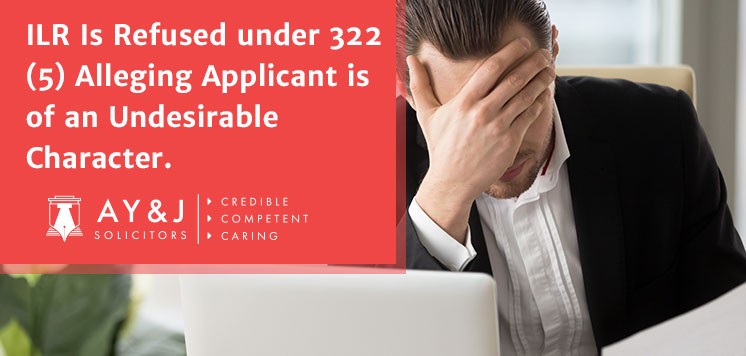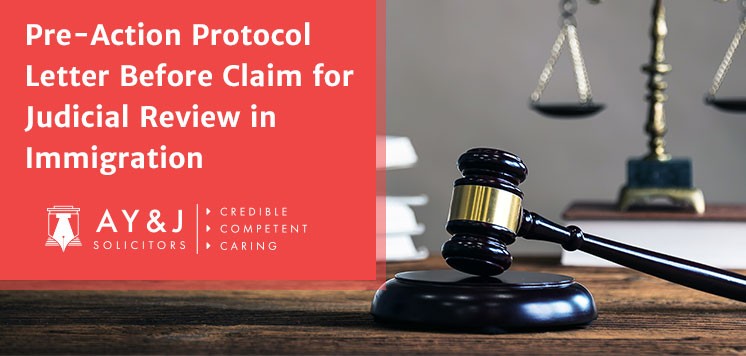Disclaimer: The information in this blog is accurate as of its publication date. Any updates after that date are not reflected here.
Spouse Visa or Civil Partnership Visa Extension will be required once your initial stay of 30 months ends. This is done by submitting an FLR (M) form application to UK Visas and Immigration (UKVI). After five years, you may be able to apply for Indefinite Leave to Remain.
With the UK government relentless in its focus in bringing down immigration numbers, extending your Spouse Visa or Civil Partnership Visa can be as challenging as the initial application. Failing to satisfy the Immigration requirement can lead to refusal of the extension application. You may get right of appeal in such cases. However, it is recommended to instruct an experienced immigration lawyer from the beginning to ensure the extension application process runs smoothly.
Client Says, “Professional and comprehensive service, Spouse Visa
[perfectpullquote align=”left” bordertop=”false” cite=”” link=”” color=”” class=”” size=””]Professional and comprehensive service that was faultless.[/perfectpullquote]Professional and comprehensive service that was faultless. The attention to detail and the guidance provided in completing the application and the required documentation was perfect. I would highly recommend the service and was extremely pleased with the final outcome.”
When applying for an extension, there are three issues couples may face. These are:
- Not meeting the financial requirements
- Questions regarding cohabitation
- Spending too much time outside the UK
Failure to Meet the Financial Requirements When Applying for a UK Spouse Visa Extension
It can come as a shock to Spouse/Civil Partnership Visa holders that their sponsor’s ability to meet the minimum income threshold must be shown again at the extension stage. But unfortunately, it does. This can have serious repercussions on the sponsoring spouse’s freedom to change career or take on another job where the pay falls under the minimum income threshold of £18,600 (this increases if you have children).
You may also have a problem extending your Spouse/Civil Partnership Visa if your sponsoring partner has lost their job, or through redundancy or illness, been forced to take a lower paid position. If this has happened to you, it is imperative you seek legal advice. In February 2017, the Supreme Court’s decision in R (on the application of MM (Lebanon)) v Secretary of State for the Home Department has widened the scope of what UKVI decision-makers can take into account when assessing whether a couple meet the minimum income threshold if refusing leave would result in unjustifiably harsh consequences. For example, third-party funding may now be taken into consideration and the best interests of any children involved must also be considered.
Unjustifiably harsh consequences are defined in the Home Office guidelines as:
“ones which involve a harsh outcome(s) for the applicant or their family which is not justified by the public interest, including in maintaining effective immigration controls, preventing burdens on the taxpayer, promoting integration and protecting the public and the rights and freedoms of others”.
If your financial or job circumstances have changed from the time your UK Spouse or Civil Partnership Visa was granted, it is essential you take advice from an expert immigration lawyer.
Questions Regarding Cohabitation
UKVI has a duty to ensure the UK Spouse/Civil Partnership Visa entry route is not abused. Therefore, it is particularly concerned with ensuring your marriage or civil partnership is genuine and not a sham.
One of the areas they will examine at renewal stage is whether you and your spouse/civil partner have been living together continuously and having a subsisting relationship for the 30 months since your initial visa was granted.
It is essential, therefore, to keep documentary evidence over the life of your initial Spouse or Civil Partnership Visa of your life together. When you submit your application for a renewal, include documents such as council tax bills, tenancy agreements, bank statements, utility bills etc.
If you have been living in different places, keep emails and letters you have sent each other, and records of phone conversations and visits you have made. It is also a good idea to provide additional evidence of your relationships, such as details of holidays you have been on together, even have a joint email or Facebook account – anything provides evidence you have created a life together.
Spending to Much Time Outside the UK
When it comes to the continuous residence and a UK Spouse/Civil Partnership Visa, there is no policy set in stone. However, it is difficult to prove to immigration caseworkers that you plan to live together in the UK permanently if you have spent months outside the country.
It is recommended that you and your spouse/civil partner try not to the absence from the UK for more than 180 days in any 12-month period. This can be a challenge for international couples, especially if they have elderly relatives who need caring for or some other compelling and compassionate reasons. If you do need to be out of the country for longer, it is best to speak to an experienced immigration lawyer.
If you plan to apply for Indefinite Leave to Remain and ultimately, British Citizenship, you must keep an eye on your absences as ‘continuous residence’ forms a crucial part of the application process. For example, when applying for British Citizenship, you must show you have spent no more than 270 days outside the UK in three years prior to applying and no more than 90 days abroad in the 12 months before making the application.
Final Words
The key to ensuring your UK Spouse Visa extension is stress-free is to take advice from an experienced immigration lawyer as poor advice can lend you in a difficult situation. By relying on legal advice and representation from the first moment you apply for a UK Spouse Visa, you can be confident you will be made aware of any actions you may take over the 30 months which may affect an extension being granted.
A Y & J Solicitors are specialists in immigration law based in central London. If you would like to have more information on extending you UK Spouse Visa, please contact us at contact@ayjsolicitors.com or call +44 20 7404 7933.
Disclaimer: No material/information provided on this website should be construed as legal advice. Readers should seek an appropriate professional advice for their immigration matters.








